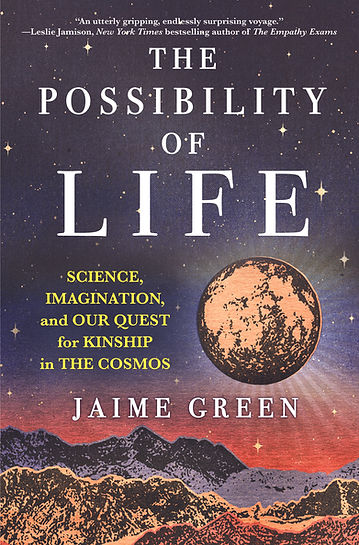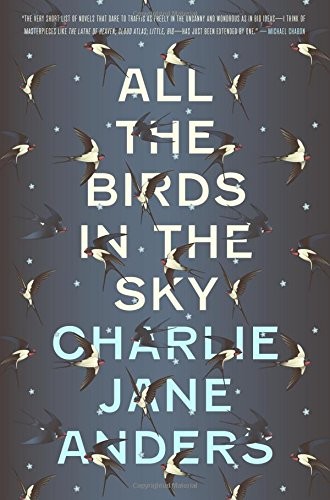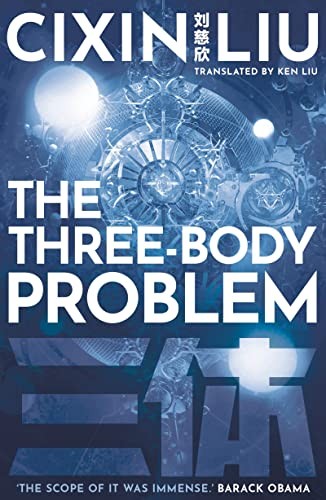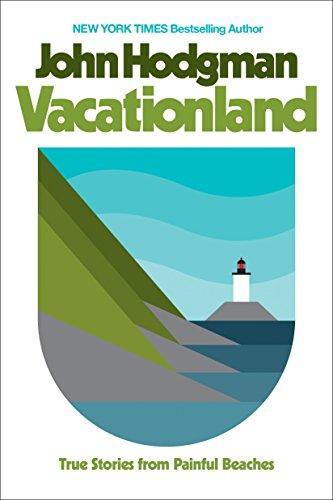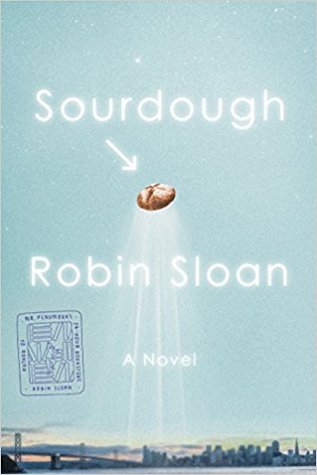I got the thought that I'd keep this around as a reference guide, in case I ever needed a reminder of how to be happy, but then I'd realized I'd never actually go back to it, because search is not yet a solved problem.
User Profile
This link opens in a pop-up window
User Activity
tauriner@bookwyrm.social reviewed Little Book of Lykke by Meik Wiking
Review of 'Little Book of Lykke' on 'Goodreads'
4 stars
Review of 'All the Birds in the Sky' on 'Goodreads'
4 stars
This book was recommended to me, soon after I'd finished Robin Sloan's Sourdough, and then declared that modern-day magical realism was exactly the genre that meant the most to me, particularly the stories in which California-based millennials struggled to find humanity and meaning in a tech-centric world. It's a kind of science fiction where all the technobabble is familiar and real, but a dose of mysticism is needed to keep Silicon Valley palatable. Venture capitalists already believe in too many fairy tales.
All The Birds In the Sky is decidedly more magical than realism, and because it's more about the duality of magic and science, both worlds are represented more or less equally. The refreshing take here isn't that it's magic versus science, at odds with each other, forever warring for dominance and yet must be maintained in some kind of cosmic balance. Or even the Harry Potter version, where …
This book was recommended to me, soon after I'd finished Robin Sloan's Sourdough, and then declared that modern-day magical realism was exactly the genre that meant the most to me, particularly the stories in which California-based millennials struggled to find humanity and meaning in a tech-centric world. It's a kind of science fiction where all the technobabble is familiar and real, but a dose of mysticism is needed to keep Silicon Valley palatable. Venture capitalists already believe in too many fairy tales.
All The Birds In the Sky is decidedly more magical than realism, and because it's more about the duality of magic and science, both worlds are represented more or less equally. The refreshing take here isn't that it's magic versus science, at odds with each other, forever warring for dominance and yet must be maintained in some kind of cosmic balance. Or even the Harry Potter version, where magicians exist in a fundamentally separatist society. Here the wizards just exist in the world in their own way, and the factions aren't sparring so much as they don't give a shit about each other, in much the way subcultures do when they have nothing in common.
Another fantastic element of the storytelling is the way Anders refuses to take her own writing seriously. Or, to put it another way, she is serious about not putting on the airs of someone writing genre fiction by pretending to do it in the voice of Tolkien or some other, more established writer from many decades ago. Anders writes the way you or I would be telling someone a story, today, which makes this book more a product of now, and not someone pretending to know what now sounds like, or someone cramming now into the mold of some other era. It's entirely possible that this is normal and I don't read enough stuff, but I felt like I don't see this often.
Some writers may tend to fall into a trap where the mystical elements are all about some kind of profound ancient wisdom guarded by witches and revealed for the benefit of the main characters' growth, but not Anders. Again, she keeps it simple, and therefore more real. People are just people trying to make it in life, whether they have magical powers or superhuman technical chops. Birds are just birds. In the first chapter, birds propose The Endless Question to Patricia, who has just learned she can understand and speak to animals and was led to the Parliament of Birds to be examined. She never finds an answer until the very end. This is going to be a spoiler, but it turns out there's nothing profound about the question, the answer, or even the entire process; it turns out the Parliament of Birds is just a government of birds who adhered to bylaws for no good reason other than that is the point of bylaws.
(Also there is more to the story than birds. Despite the title.)
The serious point that Anders does point to, gently at first, and then clearly toward the end of the book, is that the universe has a diversity of viewpoints and perspectives and as a result, even concepts that seem universal, like ethics, cannot be derived from first principles. If animals can speak and think, then even lofty, well-meaning goals about "saving humanity" seems treacherously narrow-minded. (Of course, the moral of the story is not that animals are people too, but whether individuals are willing to consider perspectives that they could not possibly have a personal frame of reference for.) In the end, Laurence, the white, male Silicon Valley wunderkind who represents a very particular Valley-inspired viewpoint on ethics, loses his ability to speak forever. It's a reminder that it's time for those who claim to speak for all of us, shut up and start to listen.
tauriner@bookwyrm.social reviewed Three-Body Problem by Cixin Liu
Review of 'Three-Body Problem' on 'Goodreads'
5 stars
SPOILERS THO
The three-body problem in physics states that although it is trivial to model the path of two bodies (e.g. binary stars) revolving around each other, it is currently impossible to create a model that can accurately predict the future positions of three bodies around each other, as minute instabilities add up over time to create a chaotic system. This book postulates that the nearest star to the earth, Alpha Centauri, as a ternary star system, is such a chaotic system; despite its unpredictability, a race of sentient species have evolved to sentience on an immensely inhospitable planet. When they learn of the existence of Earth, and realize it is in a stable solar system with a relatively mild climate, what would such a civilization do?
The book reminds me of Carl Sagan's "Contact" (well, the movie; I haven't read the book) but goes beyond the touchy-feely aspects of …
SPOILERS THO
The three-body problem in physics states that although it is trivial to model the path of two bodies (e.g. binary stars) revolving around each other, it is currently impossible to create a model that can accurately predict the future positions of three bodies around each other, as minute instabilities add up over time to create a chaotic system. This book postulates that the nearest star to the earth, Alpha Centauri, as a ternary star system, is such a chaotic system; despite its unpredictability, a race of sentient species have evolved to sentience on an immensely inhospitable planet. When they learn of the existence of Earth, and realize it is in a stable solar system with a relatively mild climate, what would such a civilization do?
The book reminds me of Carl Sagan's "Contact" (well, the movie; I haven't read the book) but goes beyond the touchy-feely aspects of Sagan's work. Contact is distinctly American, and therefore, deeply religious; when Arroway finally meets aliens, the interaction is solely a personal one, which occurs without any observable proof that it took place at all. With that experience, Arroway is humanity's messiah, able to spread the message that the promised land is a space paradise of hob-nobbing with other, enlightened spacefaring species — if you have faith. 3BP dispenses with the notion that the space age will be a lovely vacation earned by a well-behaved humanity. I don't know if it's because the author takes a very hard-science approach or it's more of a Chinese cultural influence, but the characters in 3BP don't think of joining the aliens because they believe they're worthy. On the contrary, they invite the (presumably enlightened) aliens to Earth as a corrective measure: we're flawed, we're broken, we need your help, come fix us.
Of course, even that ends up being wildly optimistic, as the aliens don't really care about mentoring humans at all. They just want a planet with an easier difficulty level to live on. The universe is a harsh and unforgiving place, and it turns out that outer space isn't the paradise, Earth is. And the aliens wants it for themselves. So, well, they kind of do the science equivalent of driving down the property values so they can swoop in and buy up all the land at a super low price by the time their moving vans get there. (It'll take about 450 years, at a maximum of 10-percent of the speed of light.)
The book ends there. Not with a proclamation of some glorious, kumbaya future, or even a clear evil to be defeated, just a slowly ticking clock. Earth will be occupied in 450 years by star-hopping alien gentrifiers just trying to find a new backyard in which to raise their alien babies. So what now?
In a series of candid essays, Mandy Len Catron takes a closer look at what …
Review of 'How to fall in love with anyone' on 'Goodreads'
5 stars
One time, on a long road trip with my brother through the middle-of-nowhere-California, we got to talking about some really deep stuff. I remember portions of that conversation vividly, because it was the first time I realized, or admitted, that I did not really know how to love. Not just someone. Anyone, really.
This has followed me around my whole life, so I suppose I was attracted to the title of this book, because someone was finally going to tell me how it worked.
Spoiler alert: it's not a guide. It's not a self-help book. But it's encouraging in the way you read any story where you see a version of yourself in the hero. We are very different people, with dissimilar personal histories, this author and I, but we share commonalies: a pragmatic, almost scientific take on the nature and the progression of love and a rejection of empty …
One time, on a long road trip with my brother through the middle-of-nowhere-California, we got to talking about some really deep stuff. I remember portions of that conversation vividly, because it was the first time I realized, or admitted, that I did not really know how to love. Not just someone. Anyone, really.
This has followed me around my whole life, so I suppose I was attracted to the title of this book, because someone was finally going to tell me how it worked.
Spoiler alert: it's not a guide. It's not a self-help book. But it's encouraging in the way you read any story where you see a version of yourself in the hero. We are very different people, with dissimilar personal histories, this author and I, but we share commonalies: a pragmatic, almost scientific take on the nature and the progression of love and a rejection of empty platitudes; a desire to understand how institutions around love formed for economic or political gain; a suspicion that the love stories we tell ourselves and to each other are convenient lies. If there's an audience for this book, it's because most of us need to be reminded there's no such thing as the one true path for falling in love, and whether you've dated a million people or zero, no one really knows what they're doing. We just like pretending that we do.
Review of 'Vacationland: True Stories from Painful Beaches' on 'Goodreads'
3 stars
TV's John Hodgman lives in Brooklyn and sometimes he lives in Brooklin, and these are stories about his life in those places. He name-drops Brooklyn easily (who doesn't?) but does not ever specify Brooklin, Maine, because he respects the privacy of his neighbors, but he leaves enough clues, on purpose, with large fat arrows pointing at them, because I think he really wants you to do some light stalking.
John Hodgman is also quite obsessed with the notion of his impending death. In many of his stories he worries that the strangers he encounters are secretly plotting to kill him. He also begs the reader not to track down his home address in Maine, show up on his doorstep, and murder him. Well what did you think was going to happen, John Hodgman? Serial killers love riddles. I wish you didn't have to go ahead and do that, John Hodgman.
tauriner@bookwyrm.social reviewed Sourdough: A Novel by Robin Sloan
Review of 'Sourdough: A Novel' on 'Goodreads'
4 stars
Someday someone will dig through the carbon nanotube graveyard of Silicon Valley and wonder, was there ever any humanity here? And someone else will hand them this book, gray and dusty from age, and say, "Yes. Many of the people here felt the yearning of creating something by hand, for no other reason than the pleasure of mastering a craft, and sharing it with their friends. Those people all left, and the ones that remained turned into robots, and died." The first person nods solemnly. It is a shame. Had more people read this book, perhaps this land might have been saved.

